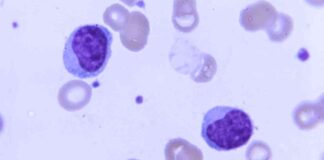Can Diets and Supplements Really Fight Cancer?
In the realm of cancer prevention and treatment, the idea of using diets and supplements to combat the disease has been a topic of much debate and speculation. Many individuals wonder if they can stave off cancer by altering their eating habits or incorporating certain vitamins and supplements into their daily routine. However, it’s essential to understand that there is currently no concrete evidence to support the notion that any specific diet, food, vitamin, mineral, supplement, herb, or combination of these can effectively slow cancer, cure it, or prevent its recurrence.
The Role of Nutrition in Cancer Prevention
A key aspect of maintaining good health and potentially reducing the risk of cancer is through proper nutrition. A healthy diet should consist of a variety of foods and beverages that provide the necessary nutrients your body requires to function optimally. While there are numerous diet trends and types that claim to have cancer-fighting properties, such as vegetarian, vegan, macrobiotic, ketogenic, alkaline, and juicing diets, it’s crucial to approach these with caution and consult with healthcare professionals before making any significant dietary changes.
Understanding Dietary Supplements and Their Impact
Dietary supplements are products designed to supplement one’s diet and are typically consumed in the form of pills, capsules, or powders. Some individuals with cancer may consider incorporating dietary supplements into their regimen to alleviate symptoms or address their condition. However, it’s important to note that certain supplements can interact with cancer treatments and potentially pose risks to your health.
While the FDA does not regulate dietary supplements as rigorously as pharmaceuticals, supplement companies must adhere to specific manufacturing and labeling guidelines. Before initiating any dietary supplement, it is imperative to seek guidance from your healthcare provider to ensure compatibility with your treatment plan and overall well-being.
Consulting with Healthcare Professionals
In light of the lack of conclusive evidence supporting the efficacy of popular diets and supplements in treating cancer, engaging in open and honest discussions with your doctor is paramount. While maintaining a balanced and nutritious diet is crucial for overall health, it’s essential to approach radical dietary changes or supplement use with caution and under the guidance of medical experts.
Beyond dietary considerations, exploring complementary and alternative approaches to cancer care, such as lifestyle modifications and integrative therapies, may offer additional avenues for enhancing your well-being and coping with the challenges of cancer treatment. By actively involving healthcare professionals in your decision-making process, you can navigate the complex landscape of cancer prevention and treatment with greater confidence and understanding.


















